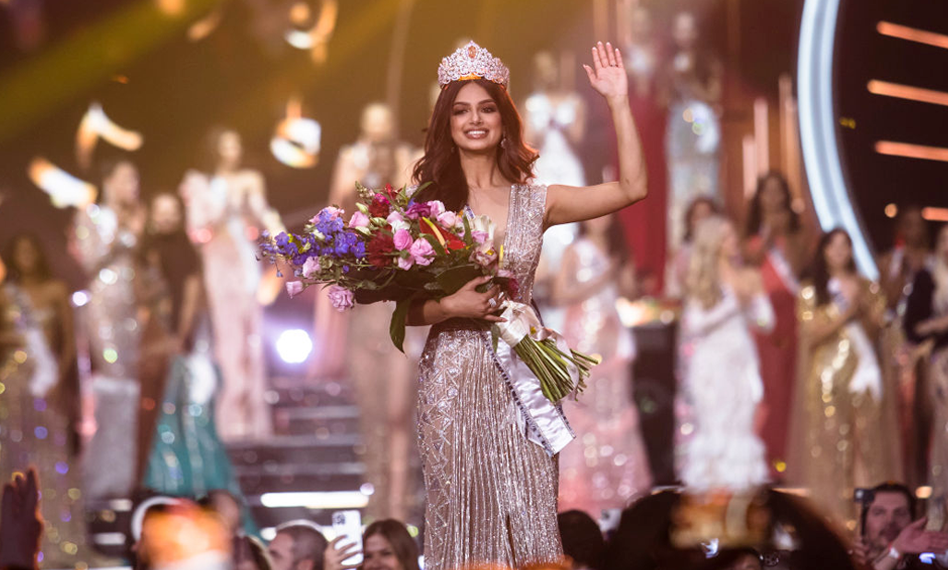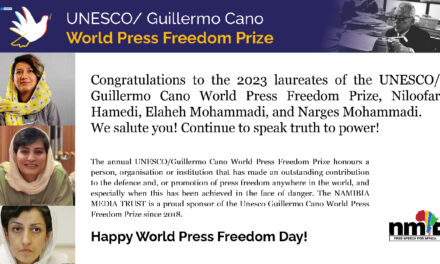
The burden of beauty

This year’s Miss Universe is from India, but why are beauty pageants even a thing anymore?
As I watched the crowning moment of the Miss Universe 2021 pageant, I realised that I could not differentiate between Miss Paraguay and Miss India. As the camera panned from one face to the other as they held hands in a schoolgirl simulation of “sisterhood”, they could well have been twins for all I could tell. And that, in a nutshell, is what the event is today; or perhaps science has just made the “sameness” more pronounced. I faithfully watched segments of this utterly pointless annual exercise – and it was painful. Identical women, with identically sculpted faces and bodies, parading in identically ideated clothing that matches up to what the West has declared will constitute ‘evening wear’ or ‘beachwear’.
The event at best is the Hollywood princess cliché at its syrupiest, but in 2021 it seemed to serve up many more face-palm moments than ever before. There was the crowning irony moment when India’s Harnaaz Sandhu, who became Miss Universe, passionately dissed beauty and declaimed, “Let’s talk about more important things happening worldwide…” while blithely forgetting that she was participating in an event in Israel amidst boycott calls and global concerns about the country’s ruthless settlement and suppression policy vis-à-vis Palestinians, an “important thing” that neither participants nor organisers were talking about.
In fact, some contestants posed with Palestinian costumes and food using a Visit Israel hashtag, oblivious to the blatant appropriation that allows Palestinian culture to be showcased even as Palestinians are systematically erased.
“Know you are unique,” trilled Harnaaz, “and stop comparing yourself with others,” even as she fought her way to the Top 10 of an event that sets 80 women in a pitched battle to decide which one will be declared most beautiful. As the young women cat-walked in a style very remote from the human gait, several of them tripped in their impossibly high heels and on the trains of their de rigueur flowing gowns. They carried ridiculous props in the national costume round. They meowed like cats. They smiled relentlessly. As always, it was all rather silly and sad.
Many of the women’s bios declared that they were working with children or young adults or women’s rights issues – and yet none of them seemed to see anything wrong with an event that forces women to measure up to boxed standards of height, weight, proportions, teeth, nose in order to be declared “beautiful”; an event that unequivocally foregrounds and rewards women for their physical appearance.
The standard response to such criticism is that these women “choose” to participate and that it empowers them. In fact, when Nelson Mandela’s grandson called for a boycott, Miss Universe Iraq went ballistic. “How dare you as a man try to tell an organisation for women and women empowerment what to do,” she said. She described the event as an “opportunity” for millions of women who dream of going on the world stage to represent their countries.
But to use words like “choice” and “empowerment” in the context of a massively marketed and financed event that is strategically backed by leading cosmetic and couture brands, and which exists inside a giant bubble of unbridled consumerism is farcical at best and tragic at worst. Touching faith in an entirely make-believe world makes it no more real than the winners posing with slum kids or domestic violence victims makes Miss Universe a human rights affair.
One imagined that something as cataclysmic as a global pandemic might have made us look at the world differently. To rethink fashion and beauty. To give women real rather than skin-deep power. But it’s business as usual. Just as celebrities believe that wearing the same dress twice makes them eco-warriors, Miss Universe rolls on, peddling itself as a women’s empowerment mission while ignoring the enormous damage done to the female psyche by such idealised beauty myths.
At an even more basic level – what really does a beauty pageant mean in a world where the perfect nose is a scalpel away and flawless skin comes in a bottle? When an entire team works to create a Galatea-like vision of perfection, where does reality end and illusion begin? Ultimately, we are left “celebrating” as feminine beauty something that’s little more than a perfect mannequin.
This column was first published in The Hindu. Image: Getty Images










